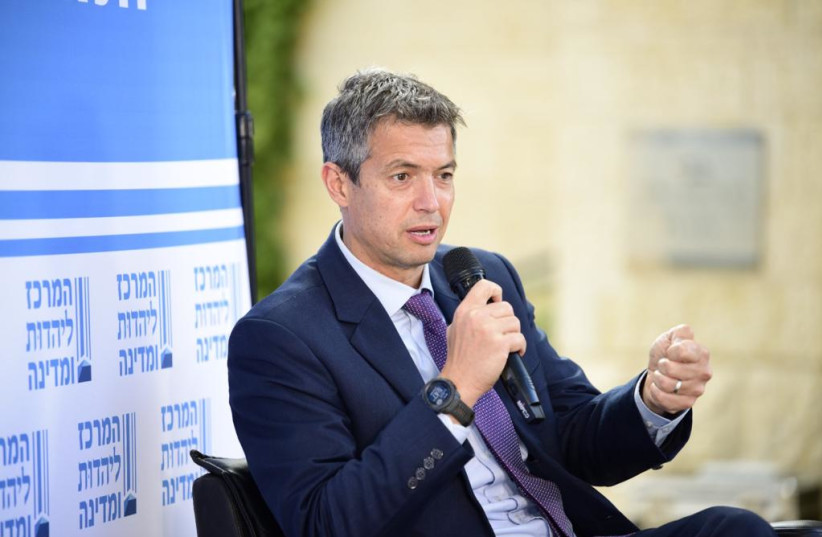Oded Revivi, mayor of Efrat, wrote last week in The Jerusalem Post that when Orthodox leaders ostracize the Reform and Conservative streams of Judaism, they are in fact committing a sin.
Of course, he didn’t say it in those words, since he is a politician, after all, as well as a faithful public servant. The wording he used was much milder. And yet his statement challenges one of the most stubborn and rigid conceptions that have characterized Orthodoxy since its inception. For the last 200 years, its leaders have been engaged in a war of attrition against the Reform and Conservative movements.
Revivi is a wise man. He also has a good understanding of all the different shades of the Jewish world better than most people who hail from this camp.
I assume he formed his opinions on this subject long ago, and yet a decade ago he would not have dared to state such a view publicly. His public was not yet ready to hear that. Today, however, it seems that quite a few public leaders from the Orthodox-Zionist Camp, even those who are deeply rooted in the mainstream, are now viewing this 200-year war with a critical eye.
Rabbi Eliezer Melamed opened the door when he held a public dialogue with Rabbi Delphine Horvilleur, and then when he hosted Rakefet Ginsberg, CEO of the Masorti Movement in Israel, in his home. This act led many people to come out of the closet.

Indeed, when cabinet minister Yoaz Hendel visited the US last week, he found it natural to attend Friday night services led by Rabbi Rachel Ain at Sutton Place Synagogue, a Conservative synagogue in Manhattan, a clear indication that there is a new normal.
Moreover, over the last few months, I’ve been treated to public handshakes and wide smiles from many people who in the past would have made an effort to downplay their connection with me.
This is a welcome trend. It is still in its infancy, I’m not deluding myself, but the winds of change are certainly noticeable.
I recall a conversation I had a few years ago with a religious politician (an Orthodox rabbi) who held a senior position. At the time, I was CEO of the Masorti Movement in Israel, and I had invited him to meet with a delegation of leaders from the Conservative Movement of North America that was visiting in Israel.
He agreed, but only on the condition that the meeting not be publicized. “In my mind, this boycott is utter nonsense,” he told me. “But I have to think about my political party and the synagogue where I pray. So, let’s just keep this between us.” And so I did.
Today, however, I’m not sure that I would have agreed to those conditions, and I’m also not sure he would have asked for them either.
I’m a big believer in dialogue. I don’t believe in putting up partitions. But I also would not want to oversimplify the discussion. Without holding conversations we’ll never get anywhere, but if the essence is only the conversation itself, it is not enough.
More than once when I was listening to a conversation with moderate Orthodox leaders who truly wanted to carry out a respectful and dignified dialogue with Jews from other streams, I would detect a tone of condescension. It felt like their whole purpose for engaging us in conversation was to bring us closer to “the correct beliefs.”
For them, it was an act of kiruv (helping Jews become closer to Judaism). As if we were far away, and by conversing with us he would be bringing us closer to the truth. Forgive me, Oded Revivi, if I’m mistaken, but it seems to me that just such a tone has crept into your article, too.
Don’t attempt to bring us closer – we’re already close. None of us knows what Judaism will look like 200 years from now, but if you take a look at history, you will see that the people who thought they were the authentic and faithful leaders of Judaism were not always the ones who stood the test of time.
Theoretically, if I had the power to press the delete button and erase the outlook (hashkafa in Hebrew) of any stream of Judaism, including outlooks that fall the furthest from my point of view, I promise you that it would never occur to me to do such a thing.
In my opinion, the haredi viewpoint has beauty, as does that of the Reform Movement, of secular Judaism, and of the entire spectrum of Modern Orthodoxy. I personally identify with the Conservative-Masorti Movement, but Jewish pluralism as a worldview – as a basis, and not just in retrospect – is not an empty slogan. None of us is more right than the other. As far as I’m concerned, we are all committed to the continuity of the Jewish people.
So come on, Revivi, it’s time to roll up your sleeves and dig in. Start with Efrat. Extol the virtues of the miracle of Jewish peoplehood. Talk with other council heads and mayors. Attempt to make a difference inside the Likud, your party.
Quite a few people in the Knesset and in national institutions think that the Likud’s natural alliance is with the haredim. So, run, Revivi, run. Speak in a voice that is loud and clear. You acted so courageously when it came to the LGBTQ community in your city. Now the time has come to speak about Jewish peoplehood. Israel is the nation-state of the Jewish people, and there is more than one way to be Jewish. A nation-state cannot escape from its people.
The writer is vice chairman of the World Zionist Organization. Translated by Hannah Hochner.
